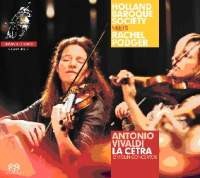I'm delighted and to no small extent relieved to present the very sixth annual Nereffid's Guide Awards, a celebration of the best-reviewed classical releases of the year.
The awards are not one person's opinion, or the result of collective votes or discussions. Instead, I determine the winners by reading reviews from five print publications - Gramophone, BBC Music Magazine, International Record Review, American Record Guide, and Fanfare - and several online sources, notably MusicWeb International, and assigning scores to each album based on those reviews. In each category, the album with the highest (weighted) average score wins; to complicate matters, bonus points are earned for accolades from various foreign-language sources. The finished product is an attempt to create some sort of objective summary of a wide range of subjective opinions.
Scroll down the page to
see each award in turn, or click on the following links:
Note: Because of the lag between release date and the appearance of reviews, the awards cover albums released between August 2011 and July 2012 inclusive.
Considering the number of times the classical music recording industry has been declared dead over the years, it's a continued delight to see such excellence on display. My congratulations and thanks, as ever, to all the artists and labels who have entertained and moved us this past year. And thanks, too, to the critics, who may contradict each other a lot but, collectively, are a most valuable group of people.















